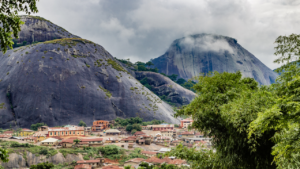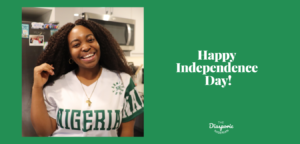A few days ago, I watched a video of Chimamanda Adichie and her daughter doing what I will describe as a call and response in Igbo and it reminded me greatly of my childhood.
Growing up, my parents, grandma and other extended family members always spoke to me in my traditional dialect so I had no choice but to learn Etsako. I prided myself so much on knowing my dialect that when I was asked to lead a prayer in my language during my high school graduation, I said yes with intense swiftness and felt on top of the world. Fast forward 11 years later, I cannot compose a complete sentence in my language.
I can think of the many reasons why I got to this point but the major one is that there are only a handful of Etsako people around me in Canada. When I finally find one of my people (usually through their names), I get really excited then immediately get disappointed to realize they cannot speak our language.
Considering how Nigeria prides itself on having over 525 languages, it is a shame that English is recognized as our official language and is prioritized in some families. While I might currently reside in a country where English is one of the official languages, I really want my future family to be rooted deeply in Nigerian culture, values and languages. Our native languages are such an important part of our lives and we will be causing ourselves such a disservice if we do not try to find ways to revitalize them.

While other Nigerian tribes may have large community associations and various ways of sustaining their cultures, I don’t see a lot of that for Edo people. We have so many folks tales from the Benin Empire and various other Edo stories that we are all beginning to forget and I cannot overstress how important it is that we do not lose these rich stories that tell us who were pre-colonization.
In my new year, new me post in January, I said I was going to dwell in the meanings of my native names this year. Little did I know that there was going to be another context to that post in the last quarter of the year. I dislike that my English name has been prioritized so much over the years and trying to unlearn this has been such a difficult journey for me. It erks me so much when I hear other Nigerians shorten their Nigerian names to become more palatable for others considering the vast beauty in the meanings of our names.

As we celebrate Nigeria’s 60th independence, it is key for us to keep in mind how problematic it is not to know our native languages so going forward, we should all make conscious decisions to keep our cultures and diverse languages alive.
While Naijalang is a good start to this, they currently only have classes for Nigeria’s three major languages, so there is still a huge vacuum that has to and must be filled.
